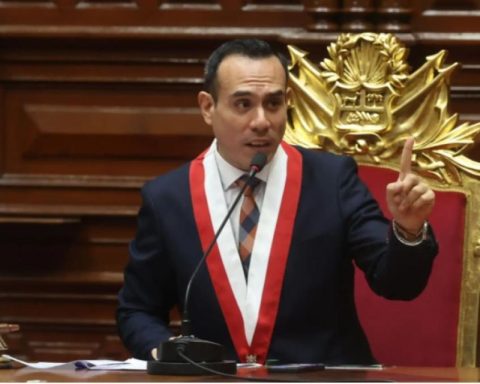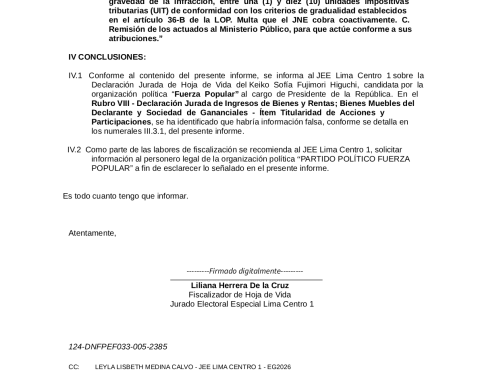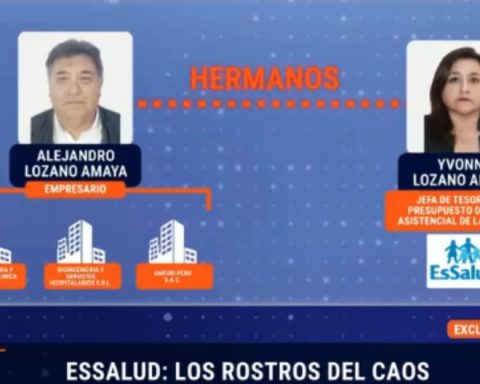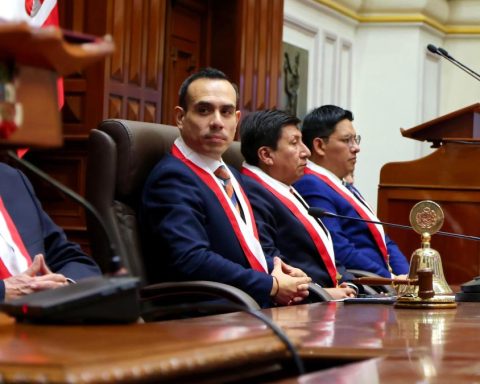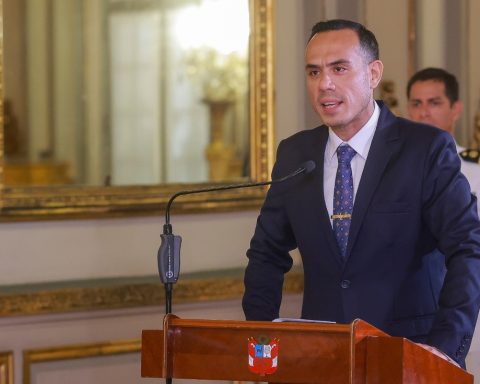There is no viable way out political crisis that crosses Peru for a long time. With the deeply delegitimized Executive and Legislative powers, The solution to the entrapment hardly comes from those who -at this time- exercise power. Political scientist Gonzalo Banda analyzes the situation.
Are there democratic solutions to the crisis? You only hear of vacancies, resignations, closures of Congress. Are they serious solutions? What do you think?
There could be democratic solutions. In fateful moments it was possible, but thanks to personalities who had credibility and impeccable democratic performance, whose ethical reputation no one questioned. Think of Valentin Paniagua. So there were some parties and other leaders had credentials and were not worn out, burned out. Today is different, because Congress is not only deeply unpopular, but its leaders are also very unpopular.
They compete in unpopularity with the president, right?
Yes, not only that. when she listened the audios of the president of Congress I wondered why the opposition didn’t capitalize on Castillo’s mistakes. Good because Alva brings together all the caricatures of a certain type of Lima aristocracy lost in their dalliances, egos, more than in solving problems. What is needed now is a lot of detachment, but people interpret this as a kind of picking each other’s wallets. And that is why political solutions are more difficult. If it has already been installed in the discourse that whoever could assume a transition basically wants power to thrive on it, then we are in a kind of exit alley.
YOU CAN SEE: What did the president of Congress, María del Carmen Alva, say in broadcast audio?
It doesn’t make sense to expect a democratic solution to come from an institution like Congress that has such high disapproval, correct?
Surveys reveal that the population does not expect Congress remains as the legitimate political actor, wants…
Everyone leaves.
Which makes us think about how badly the opposition played to elect the president of the Congress. These scenarios -that the shock cabinets, that the possible dissolution of Parliament- were already present among the congressmen before. So, they had to put someone with capacity and moral reputation in charge. What I see is a trap. Let’s say it like this: we are in a balance in which it is costly for all the actors to enter into a process in which they end up disappearing. They prefer to perpetuate themselves, they prefer to perpetuate the discourse of crisis.
Banda describes both actors, Executive and Legislative, as “profoundly mediocre.” Photo composition by Jazmin Ceras / La República
Is it a war of words?
There is a crisis, but do they face it with any proposal? The political scene is simply polarized around a debate on the crisis. It is something more metaphorical, with allegories. Congressmen send letters to each other, no? So, if you’ll allow me, I see a deeper crisis here, you know?
What kind?
It is a crisis that speaks of the serious problem of our political class -not all- of getting rid of power when they see that the situation is beyond them. I know that the underlying issue is one of institutions, of reform, of the system, however, to resolve that, a provisional bridge must first be built, which no one is willing to cross.
The resignation of power?
That’s how it is. For me, good politicians are those who, not wanting power, assume it in difficult moments and then leave it. Something like this is strange right now. War is about qualifiers: Congress uses the rhetoric that they want to close them and from the Executive…
They accuse an alleged hit.
Then, in a policy of victimization where all these gentlemen are innocent victims of the rest, those who lose are always the citizens.
YOU CAN SEE: Montoya on congressional disapproval: “People have no idea what our task is”
And given the situation, perhaps the healthiest thing would not be for the Executive and Congress to finish their periods? Or the situation does not give for more?
What happens is that the deterioration within the State, the destruction of the bureaucratic apparatus in many ministries is a political cost from which it will be very difficult to recover in the short term. Imagine four years of this continuous erosion, with shady bidding, found silver, complaints. That can hold up perhaps in a local government…
Not a national one. In agreement. Now, on the other side, the institutional erosion of Congress is also worrying.
Exactly. It would even be easy for Congress to distance itself from the government and propose an agenda that serves the citizens, but it does not. Why? Because those who lead Congress are a caricature of what Peruvian society would not like its leaders to be. That is the basic question, how do we untie this avoiding higher costs?
YOU CAN SEE: Condori appoints a veterinary doctor as advisor to the Minsa
It is the central question. Do you have an answer?
The order has to start somewhere. You can not lose patience and burn everything. We must try to reach minimum understandings that are not negotiable. If President Castillo insists on putting a health minister who is a joke, That minimum is clearly not being respected. We do not go for the extreme exits, perfect. No one has the incentive to do it, okay. So let’s go for the bare minimum. Congress could exercise political control. The same should be required, for example, a transparent process in the selection of the magistrates of the Constitutional Court.
It is not time to get ambitious, let’s say.
We cannot be ambitious because both actors, Executive and Legislative, are profoundly mediocre. We’ll have to heal from here in time.

